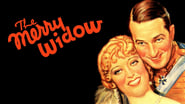Cathardincu
Surprisingly incoherent and boring
Stometer
Save your money for something good and enjoyable
Doomtomylo
a film so unique, intoxicating and bizarre that it not only demands another viewing, but is also forgivable as a satirical comedy where the jokes eventually take the back seat.
Guillelmina
The film's masterful storytelling did its job. The message was clear. No need to overdo.
Jem Odewahn
An exquisite musical, and one of the best examples of the celebrated "Lubitsch touch". Lubitsch really was the master of sophisticated romantic comedy. Jeanette MacDonald is the widow of the title, whom ladies man Maurice Chevalier woos twice and eventually wins. A lovely confection, with Lubitsch's fluid directing and elegiac camera movements really making it a swell piece of early sound cinema. I loved how he staged the musical numbers, even if I wasn't too fussed over MacDonald's operatic stylings. The film is structurally just about perfect, with the ending "answering" the beginning. Chevalier sings "Girls, Girls, Girls" in the opening scene, yet by the end we know he only wants one girl, the lovely Jeanette. He still has only one thing on his mind, but only one woman on his mind to do it with! Great fun!
netwallah
Based loosely on the operetta by Franz Lehár, this Ruritanian confection has some of the original music—notably the waltz, and "Meet Me at Maxim's—both as musical numbers and leitmotifs. The tiny kingdom of Marshovia is in trouble—its principal citizen, the wealthy widow Sonja (Jeanette MacDonald)—who, heavily veiled, has attracted the attention of Count Danilo (Maurice Chevalier)—has cast off her black clothes and gone to Paris. The King sends Danilo to Paris to marry her so her fortune won't leave the kingdom. Sonja is already smitten, and goes to Maxim's to see him. He hasn't seen her face, and accepts her as "Fifi." She declines his advances in a private dining room, saying she prefers truth to lies, and she leaves. He goes to the embassy to be presented to the woman he must marry, and the nervous ambassador Popoff (Edward Everett Horton) introduces them. Okay, but she gets wind of the plot and calls the union off. Danilo manages to win her back. There is a great deal of singing, and some rather luscious waltz scenes where maybe a hundred couples swoop through a colonnaded ballroom. Chevalier maintains his usual charm even though the part—a man no woman can resist, and about whom no woman is jealous of another, and whose leaving they accept perfectly cheerfully—is tripe. He throws back his head and laughs. As a musical it can succeed only if you like Jeannette MacDonald and her fluttery soprano voice and the swoopy big orchestral productions behind her. No really memorable tunes except the great Lehár waltz. Oh, and Marshovia is a mess—it's sort of Slavic and sort of Islamic (the king is named Achmet) and sort of feudal and backward, and yet the palaces are vast. Mme. Sonja's bedroom looks about the size of a hockey arena in a populous city; if there's a vase, you can bet it is twelve feet high and made of marble, and if there's a bed, you can bet that there's room for milady and all her household staff, including the Russian wolfhound they forgot to throw in. This is a stupid movie of the sort one rather enjoys in spite of one's better judgment.
MartinHafer
Jeanette MacDonald,...now that's a star who ONLY would have become famous during one particular cinematic era. By today's standards, her singing is excruciating to listen to despite her being a pretty good actress. Her operatic-type style is, to put it bluntly, horrid--as she hits notes high enough to curdle milk and make babies cry. If you haven't guessed, I'm not one of her biggest fans.However, apart from Jeanette's horrid singing, I loved the film. Maurice Chevalier makes it so worth watching with his enchanting performance--sort of like a middle-aged version of the same lusty but sweet guy he played in GIGI. Plus, I actually liked his singing--it didn't make my ears bleed.As for the movie itself, much of its charm is owed to director Lubitsch. He truly had a magical touch when it came to romances and light comedy. This is particularly true in the last 5 minutes of the film--pure Lubitsch magic and about the best 5 minutes you'll ever see on film.So my final verdict--hit the fast-forward button when Ms. MacDonald sings and you'll love this picture.
didi-5
MGM's second version of 'The Merry Widow', this time using the music of Lehar's operetta and starring Jeanette MacDonald and Maurice Chevalier in the roles previously filled by Mae Murray and John Gilbert in the silent movie.Jeanette MacDonald is a revelation here if you've only seen her in the films which teamed her with Nelson Eddy from 1935 and 1942. Her Sonia is sparky, flirty, and naughty, and naturally in beautiful voice as ever. Maurice Chevalier brings his considerable Gallic charm to the role of Count Danillo, while familiar character faces of the period flesh out the supporting cast (Edward Everett Horton, Donald Meek, Una Merkel, Sterling Holloway).The film looks sumptuous, with beautiful sets and striking black and white photography. Definitely one of the key musicals of the 1930s.



